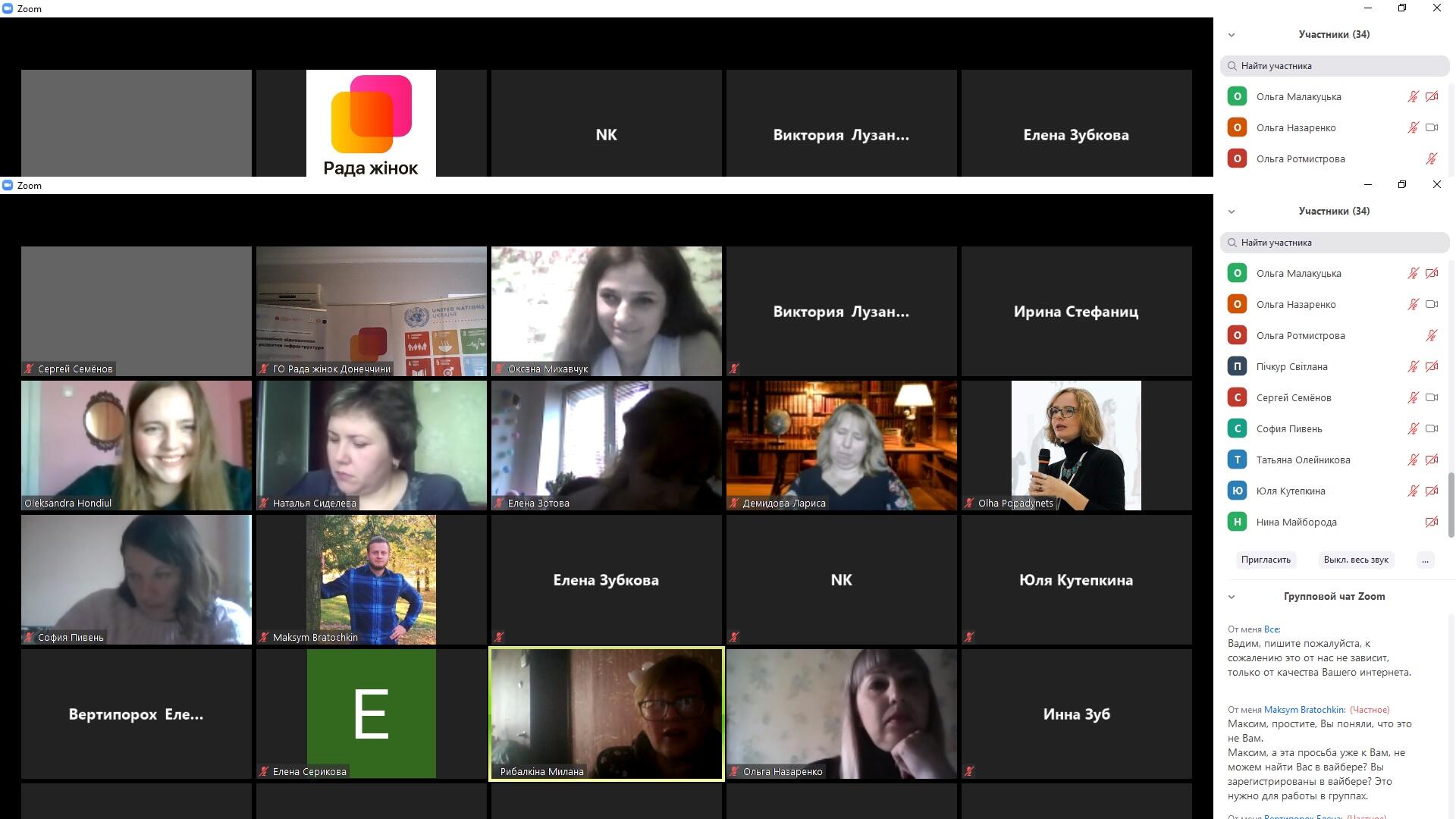On April 21-24, 2020, the first online Hackathon on gender-sensitive vocational guidance for educators of pre-higher education institutions and vocational schools of Mariupol was held within the framework of the United Nations Recovery and Peacebuilding Program. Twenty-seven female and male teachers took part in the event, which included master classes on gender sensitivity, design thinking, project management, presentation design, and pitching. The most active stage was the group work of 5 teams, who developed 5 projects containing the ideas related to increasing the gender sensitivity of admission processes in vocational schools.
According to the voting results, the best project received funding to implement the idea: the team Gender-Sensitive Female Specialists will make a video aiming to help students consciously choose a profession based on their personal interests and not on gender stereotypes and parents’ influence. The video will show positive cases, namely institution graduates who chose a profession that is not typical of their gender and achieved success in it will share their experience. In addition, the 7 most active participants in the event were awarded.
Despite the fact that many of the participants have already applied the gender-sensitive approach in their work, for some of them the topic was absolutely new.
“Gender sensitivity is completely new to me. I never paid much attention to it in my professional career. And I have faced insensitivity many times" (quote from one of the female participants).
According to the results of the final survey, more than 80% of the participants said that they felt motivated and able to take further action for positive social change, namely (below are some quotes from participants):
I will definitely pay attention to the vocational guidance of girls (I teach at a machine-building educational institution);
I will make changes to the vocational guidance web page of my institution taking into account gender sensitivity;
I will use feminitives, and I will be more gender-sensitive;
I will use photos of both men and women on advertising leaflets and posters during the admission process, and I will use feminitives;
Where possible, I will not use the general masculine gender when referring to professions (in internal documents, when communicating with the external environment); it is unrealistic to rename them completely because of the Dictionary of Occupational Titles;
when holding master classes, conferences, open days, I will involve both boys and girls as examples of success stories applying the peer-to-peer method;
I will not emphasize the "male" and "female" professions when communicating at vocational guidance events;
to work with companies and organizations representing professions at the Open Days to ensure that feminitives are used and there is no division of professions by gender;
We thank the Hackathon participants, coaches and mentors, and, of course, our partners from the NGO Council of Women of Donetsk Region for the first successful experience of holding a hackathon remotely. And we will continue in Melitopol and Berdiansk in the nearest future.
The Hackathon was held within the framework of the United Nations Recovery and Peacebuilding Program implemented by four UN agencies: the United Nations Development Program (UNDP), the UN Entity for Gender Equality and Women’s Empowerment (UN Women), the United Nations Population Fund (UNFPA), and the Food and Agriculture Organization of the United Nations (FAO).
The Program is supported by twelve international partners: the European Union (EU), the European Investment Bank (EIB), and the governments of the United Kingdom, Denmark, Canada, the Netherlands, Germany, Norway, Poland, Switzerland, Sweden and Japan.


